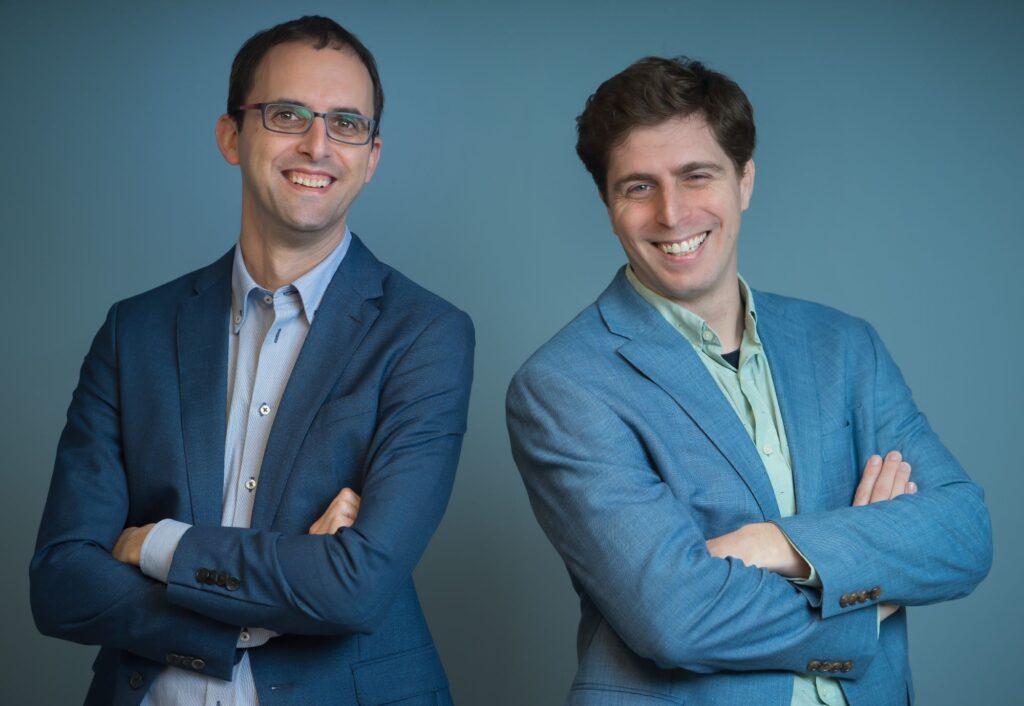Running clinical trials for potential drug therapies is a complex process, involving patient participants, specialist physicians and advanced medical facilities. The average price tag for each individual trial runs into the many millions – and more than 90 percent of them fail.
But an AI platform created by Israeli startup QuantHealth is easing the cost and the pressure by running clinical trial simulations on drugs under development, predicting their risks and outcomes and allowing thousands of simulated trials to take place at once.
The platform simulates both drugs and patients, “virtually exposing virtual patients to virtual treatments,” Quanthealth co-founder and chief strategy and operations officer Arnon Horev tells NoCamels.
Crucially, Horev explains, the platform allows pharmaceutical companies to reduce their spending on clinical trials, which he says comes collectively to about $100 billion annually.
“This is the most important value for pharma companies,” he says, although for QuantHealth there are also other patient-related considerations.
“We want to help them to be more successful, but also to bring drugs to the market faster, to bring patients additional treatments that they wouldn’t get in the current model.”

The platform takes a matter of weeks to construct a trial for each different drug, as compared to the months or even years required for trials involving patients.
It uses electronic medical records for 350 million patients (all anonymous) and data on different drugs – obtained through specialist companies – and simulates how each patient with his or her own particular health history would react to a certain drug in development.
“We are representing any patient and any treatment,” Horev says. “We’re measuring how those patients would respond to that treatment.“
And by altering the variables for the trial, such as patient age or medical background, the platform can predict the most successful outcome for a new drug.
The platform, Horev explains, uses very deep and complex technology, which he says is the “most advanced in the industry.” What is more, he claims, it yields an accuracy rate of 85 percent when it comes to predicting whether a drug will succeed or fail.
The platform focuses on three main categories, according to Horev: the patient population, with its wide range of variables; the treatments themselves, where it can measure multiple parameters, such as dosage, frequency and method of administration; and key performance indicators (KPIs) – determining the outcomes that will support the findings of a clinical trial.
To prove the model’s effectiveness, the company has already run scores of simulations on different therapies, including blind tests for drugs on the market as well as simulations for drugs whose clinical trial results had not yet been released.
The results were represented to the relevant pharmaceutical companies, showing that 85 percent accuracy.
“This is a great sales tool for us, as you can imagine,” Horev says, “but it’s also a way to test ourselves.”

The technology, he says, is applicable for every kind of therapy, but QuantHealth began with a focus on oncology, moving into additional areas such as autoimmune, cardiometabolic and respiratory diseases.
Sign up for our free weekly newsletter
SubscribeWithout divulging names, Horev says they are currently working with some of the biggest names in the pharmaceutical industry.
“We are seeing a lot of need for this,” he says.
And Horev says the drugs they are working on include “very innovative” novel treatments that are still in development and “serious blockbusters” that will soon be extremely important to the companies that created them.
Horev set up QuantHealth four years ago with his partner and company CEO Orr Inbar, both veterans of the pharmaceutical industry who understood the scale of the challenge of making clinical trials more effective.
“We know the problems of the industry very, very well,” he says. “This problem is the biggest and the most untapped in the industry, by far.”

The main challenge lay in the fact that there are multiple different parameters that influence a patient’s response to a new therapy, Horev explains, and until QuantHealth devised its AI platform, this had seemed insurmountable.
“We bought a very different approach to this, in order to solve it,” says Horev, primarily crediting Inbar’s skills as a data scientist.
He says that there are other companies working to resolve the issue of clinical trials, but repeats that QuantHealth is the most advanced in terms of technology, infrastructure and evidence gathered to support the efficacy of the platform.
“It’s a new category that we started,” he says. “We are the trailblazers.”
And it seems as though many of the biggest investors in the industry agree, with the company completing a Series A funding round of $17 million last year.
The funding round was led by Israel’s largest VC Pitango and Germany’s Bertelsmann Investments, together with Nina Capital of Spain and Shoni Health Ventures, also from Israel. Irish-American multinational Accenture, which has two offices in Israel, also invested, bringing QuantHealth’s total funding to $21 million.
It also received several grants, among them funds from the Israel Innovation Authority, the branch of government dedicated to advancing the local high-tech industry.
The company expects an increasing number of clinical trials to be partially conducted using computational models within the next decade, and is preparing for the day when there is no human patient participation at all.
“The technology is not there yet,’ Horev says. “But it will be.”
Related posts

Editors’ & Readers’ Choice: 10 Favorite NoCamels Articles

Forward Facing: What Does The Future Hold For Israeli High-Tech?

Impact Innovation: Israeli Startups That Could Shape Our Future




Facebook comments